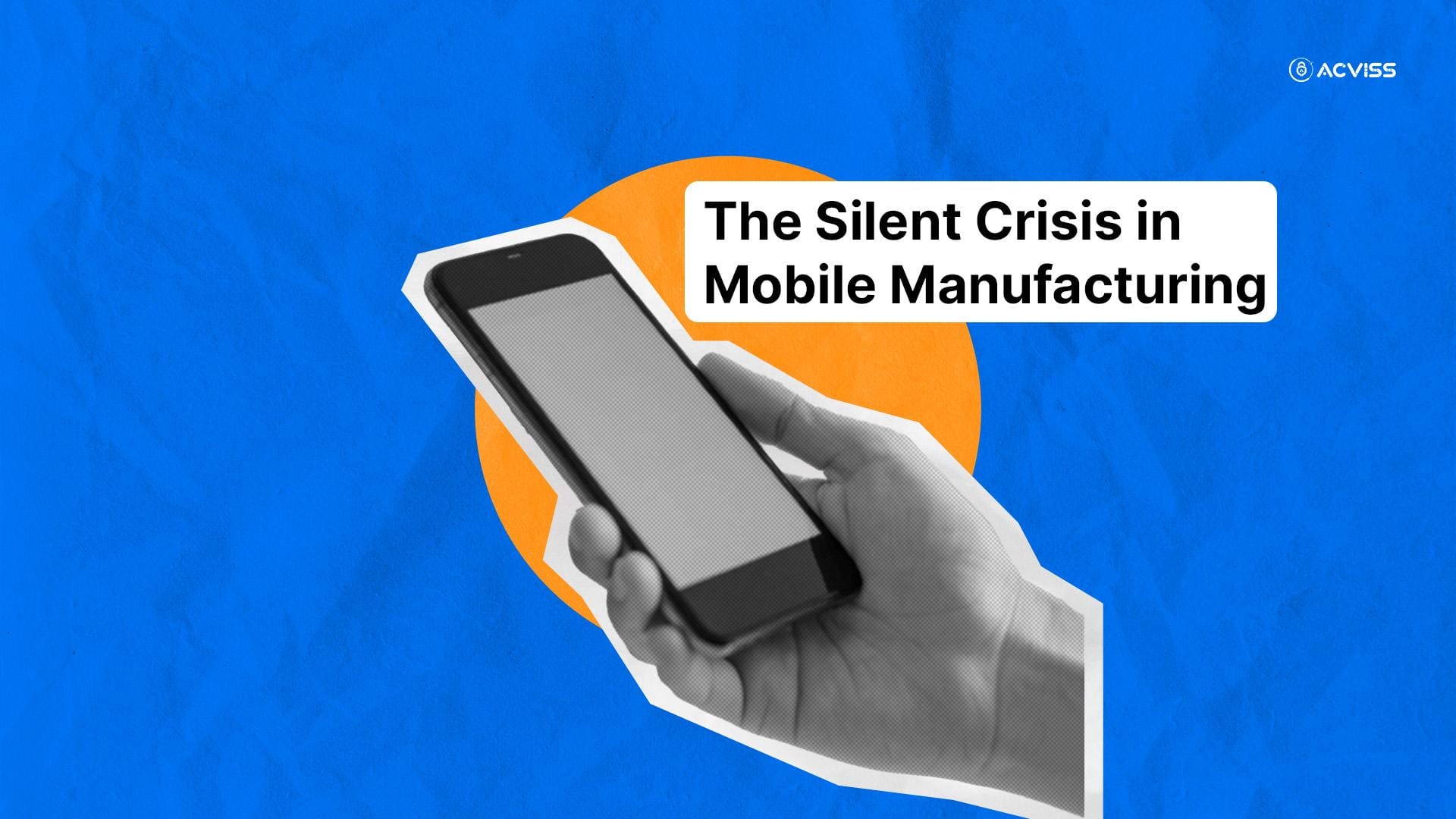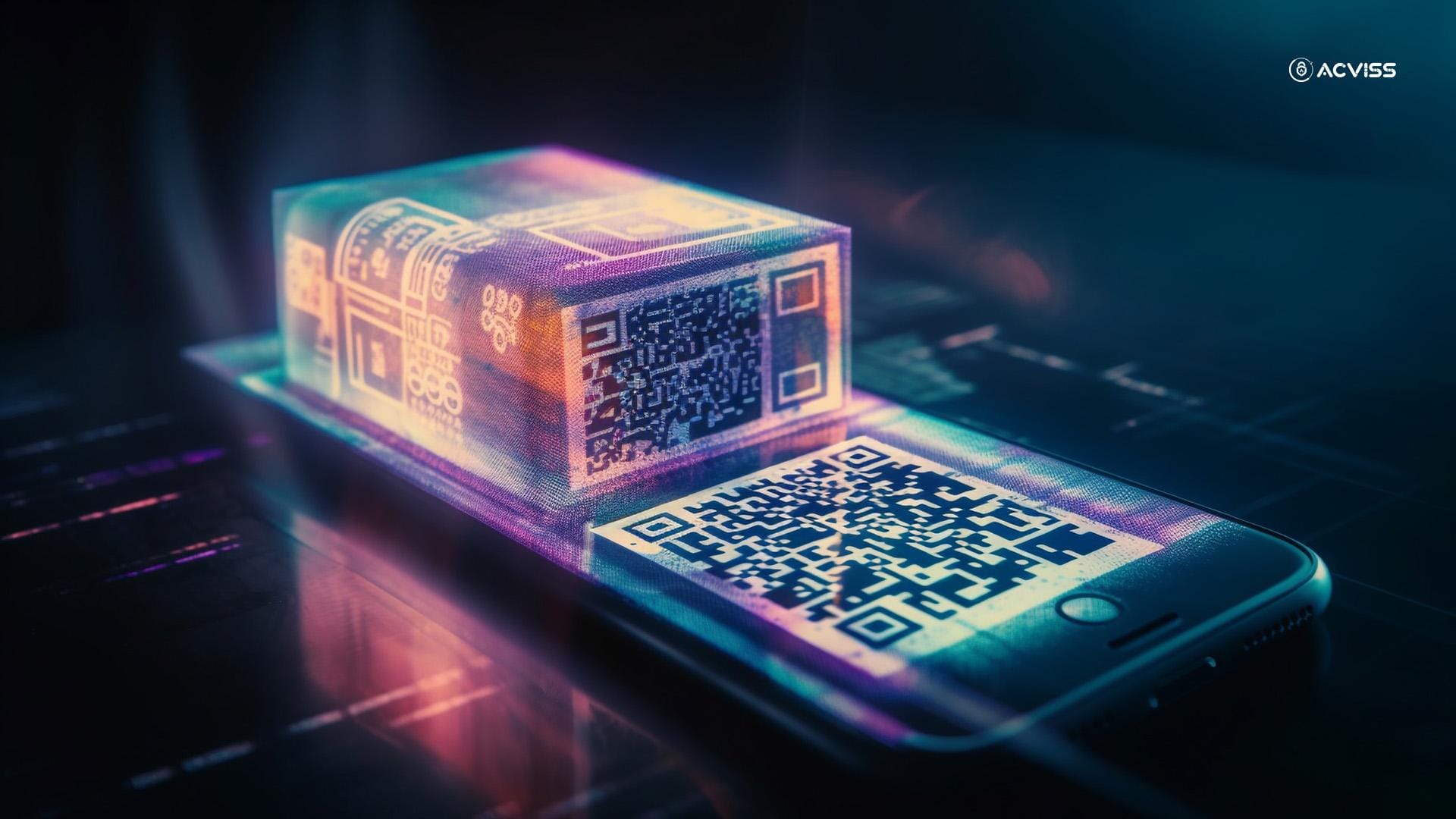The Silent Crisis in Mobile Manufacturing: Why Traceability is No Longer Optional

Every mobile phone we use today represents a staggering journey across continents, technologies, and timelines. From rare earth metals mined in remote corners of the world to assembly lines buzzing with precision machinery, the supply chain of mobile manufacturing is intricate and fragile.
Yet, with all this complexity, something vital often slips through the cracks: transparency.
In an era where customer trust, IP protection, and supply chain resilience define the health of a brand, the mobile industry faces a silent but growing crisis: counterfeiting, grey market diversion, and opaque supplier networks.
This is no longer just a developing market problem. It’s a global concern, and for brands, the risks are greater than ever before.
Let’s unravel why track and trace, product traceability, and authentication technologies are becoming central to the future of mobile manufacturing, not just as compliance checkboxes, but as pillars of brand survival.
Why the Mobile Supply Chain Is More Vulnerable Than You Think
Annual production value of mobile phones surged from ₹18,900 crore in FY2014‑15 to over ₹4.22 lakh crore in FY2023‑24, reaching approx ₹5.25 lakh crore in FY2024‑25. This growth is a sweetspot for exploitation.
The modern mobile device is built using hundreds of components sourced from dozens of suppliers. Add to this the global trend of outsourcing manufacturing, and you’ve got a labyrinthine ecosystem that’s extremely difficult to monitor in real time.
The challenges are many:
- Component-level duplication: Counterfeit batteries, ICs, and displays not only compromise performance but also customer safety.
- Parallel imports and grey market activity: Genuine products leak into unintended markets, disrupting pricing and local brand strategies.
- Weak IP enforcement: Without robust trademark protection and IP monitoring, brands leave themselves open to imitators.
- No unified visibility: Most mobile brands rely on fragmented systems to monitor their supply chain, with minimal interoperability.
The consequence? A steady erosion of brand trust, not to mention compliance risks and shrinking profit margins.
That’s why leading brands are now turning towards product authentication, brand protection solutions, and comprehensive track and trace systems to re-establish control.
How Counterfeits Hurt More Than Just Your Sales

We often talk about fake phones or accessories in terms of lost revenue. But the damage runs deeper.
1. Brand Perception
Imagine a customer who unknowingly buys a counterfeit phone that mimics your brand. It overheats, performs poorly, or outright fails. Even if it’s not your fault, brand verification in the customer’s mind is already compromised.
2. Legal Liability
Some markets have begun to hold brands accountable for product safety and compliance, regardless of where the fault lies in the supply chain. Without verifiable product traceability, proving innocence becomes a legal challenge.
3. R&D Drain
Every copied design or leaked prototype undermines years of innovation and intellectual property investment. Without proper IP protection technologies, brands risk becoming R&D donors for counterfeiters.
4. Customer Trust
Perhaps the most intangible, yet most valuable, loss is that of customer loyalty. Once trust is broken, even genuine improvements in product quality may not win it back.
The Case for Intelligent Traceability: From Factory Floor to Consumer Hands
The solution lies in smarter, not necessarily more complex, supply chain design.
Today, intelligent track and trace systems offer brands an opportunity to reimagine how products move across the lifecycle, from raw material to retail shelf to end-of-life recycling.
Here’s what that looks like in practice:
- Source Verification: Components can be tagged and verified at the point of manufacture, using tamper-proof authentication technologies.
- Journey Mapping: Every checkpoint in the logistics chain is recorded in a secure, accessible platform, offering full product traceability.
- Retail Authentication: Customers can use mobile apps to validate the originality of their phone or accessory, a reassuring step that builds brand equity.
- Data-Driven Alerts: Any deviation, delay, or duplication in the product journey triggers alerts, helping to prevent grey market diversion or counterfeit injection.
These systems don’t just benefit the brand; they empower consumers and enable authorities to act on violations with hard evidence.
Why Traceability Needs More Than Just a Barcode

Traditional systems relying on barcodes or QR codes are no longer sufficient. Sophisticated counterfeiters can replicate these easily.
What’s needed now is non-cloneable identity at a product level, an embedded mechanism that cannot be copied, modified or bypassed.
Solutions like Acviss Origin bring precisely this level of security. By using advanced cryptographic and computer vision technologies, they offer:
- Unique product-level IDs that cannot be duplicated
- Seamless integration with mobile apps for real-time product verification
- Immutable records stored in secure digital ledgers, offering tamper-proof supply chain data
The beauty lies in its simplicity: customers can scan, verify, and receive product information within seconds. For brands, this translates into visibility, compliance, and customer engagement.
How Authentication Technologies Are Changing the Game
Mobile brands are increasingly seeing product authentication not just as a defensive tactic, but as a competitive advantage.
- Faster recalls and proactive quality control: In case of defects, brands can pinpoint the batch and location instantly.
- Improved warranty management: Fake warranty claims are reduced drastically when the product itself carries its own history.
- Enhanced customer experiences: Authentication platforms can become engagement touchpoints, offering tips, usage data, or loyalty points.
- Sustainability tracking: Traceability also opens the door to circular economy models. Brands can track components reused, recycled or upgraded.
In other words, traceability is no longer just a supply chain feature. It’s a business strategy.
Lessons from the Market: Why Some Brands Succeed While Others Struggle
The mobile sector is fiercely competitive. The difference between brand success and decline often boils down to how well a company protects its assets and delivers consistent quality.
Some common factors seen in successful mobile brands:
- Early adoption of traceability: They don’t wait for regulations to force change.
- Integration across departments: Legal, marketing, R&D, and logistics all buy into the value of brand authentication and IP protection.
- Customer-first thinking: They see authentication not as a burden but as a value-added feature.
- Willingness to partner: They work with providers who specialise in anti-counterfeiting solutions and brand protection technologies.
On the flip side, brands that struggle often suffer from fragmented systems, weak enforcement, or reactive approaches to counterfeit threats.
What Should You Look for in a Traceability Partner?

Implementing a robust traceability system requires more than off-the-shelf software. You’ll want to look for partners who:
- Understand the nuances of mobile manufacturing
- Offer scalable solutions tailored to your supply chain’s size and complexity
- Integrate seamlessly with your current ERP, logistics, and CRM systems
- Provide real-time analytics and actionable insights
- Have a proven record in brand protection solutions and trademark safeguarding
A solution like Origin by Acviss is built with these needs in mind, designed to integrate with minimal disruption and scale as your product lines grow. From small OEMs to large manufacturers, it ensures every device tells its own verifiable story.
The Future of Mobile Manufacturing Is Transparent
As customers become more conscious, regulations tighten, and counterfeiters grow smarter, the only sustainable path forward is visibility into every part, every supplier, every movement.
By embracing product traceability, authentication technologies, and IP protection, mobile brands are not just defending their position; they’re building a better, more trustworthy future.
It’s no longer enough to simply make great phones. You have to prove their originality, their safety, and their journey.
That proof is what builds trust, and in today’s market, trust is everything.
Interested in learning how your mobile brand can implement traceability and anti-counterfeiting solutions at scale? Get in touch with us and let’s start building a transparent future, one product at a time.
